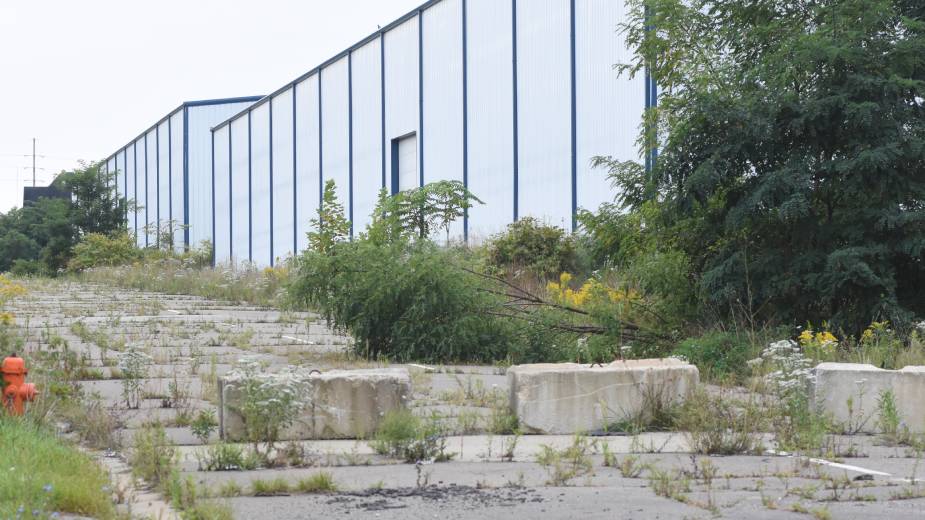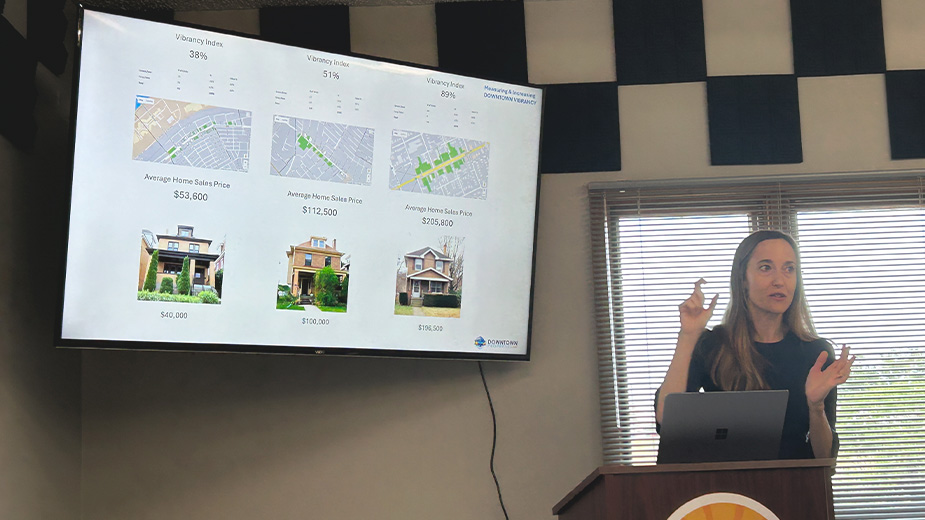Chill Can Attorneys Seek to Disqualify Court Magistrate
YOUNGSTOWN, Ohio – Attorneys representing the developer of the ill-fated Chill Can project have filed court motions seeking to disqualify the Mahoning County magistrate who is hearing its ongoing litigation with the city.
The motion, filed Monday by attorney Justin Markota, states that the court should disqualify Magistrate Dennis Sarisky because he has exhibited bias toward M.J. Joseph Development Corp., which filed the initial complaint against the city of Youngstown in May 2021.
“Magistrate Sarisky’s pattern of rulings in this case, without first holding the requisite hearings, demonstrates a propensity to pre-judge the issues,” the motion says. “The magistrate has shown a pattern of issuing decisions without conducting the necessary evidentiary hearings.”
Sarisky, a Mahoning County Common Pleas Court magistrate, has twice ruled in the city’s favor during the ongoing dispute between M.J. Joseph and the city.
On Sept. 28, 2022, Sarisky ordered that M.J. Joseph pay the city $1.5 million for breach of a development contract the parties signed in 2017. Judge Maureen Sweeney of Mahoning County Common Pleas Court upheld the ruling in November of that year. M.J. Joseph attorneys have filed an objection to this ruling.
In July, Sarisky ruled that the city is entitled to an additional $733,480 in sanctions from the developer, citing the company’s “repeated noncompliance” to court orders mandating they abide by discovery requests filed by the city’s attorneys.
In his order, Sarisky cited M.J. Joseph’s “repeated noncompliance and the number of failed opportunities this court provided the plaintiffs to correct their faulty behavior, and the fact that plaintiff’s behavior has resulted in substantial delays and expense to the city.”
The motion filed by Chill Can attorneys Monday objects to that ruling, arguing the magistrate’s decision awarded sanctions without first obtaining evidence of damages. Although a hearing was held on May 24, city attorneys presented arguments before the court, not evidence, the filing says.
“The magistrate’s decision fails to establish appropriate findings of fact regarding plaintiff’s ‘faulty behavior’ that resulted in ‘substantial delays’ and expense to the city,” the motion said.
The Chill Can project – first announced in 2016 – involved constructing a $20 million campus on the East Side devoted to the development of self-chilling technology and the production of self-chilling beverage cans.
The city in 2017 awarded the project a $1.5 million grant for site development and a 75% tax abatement on the condition that project be completed and create a specified number of jobs.
The project was supposed to create more than 230 jobs; the company today lists just one employee, and three buildings remain empty at the site more than six years later.
Anticipating a lawsuit, M.J. Joseph filed a complaint against the city in May 2021, saying it wasn’t entitled to a refund of the $1.5 million.
The city countersued for return of the grant money, plus $414,948 in property acquisition and relocation costs, and another $318,523 in demolition and abatement expenses the city incurred for the project.
According to earlier filings, the city also seeks return of the land and buildings now on the site.
In the latest filing, attorneys for M.J. Joseph also allege that Sarisky has directed bias toward them in a separate case related to the Chill Can project.
“This is now the second instance of the magistrate exhibiting such bias against the plaintiffs,” court documents say.
In March, the court awarded default judgment to MS Consultants Inc., a Columbus-based engineering firm that sued M.J. Joseph for an unpaid balance of $322,907.54 for work the company did at the Chill Can site.
“The court granted default judgment against plaintiff without providing notice or conducting a hearing,” the filing said.
The magistrate, the filing continues, has also refused to issue an order correcting a clerical error in the case that would allow for M.J. Joseph to file a timely appeal.
M.J. Joseph filed a notice of appeal to the 7th District Court of Appeals on April 19. However, a clerk did not time stamp the documents until the following day, April 20, which was one day outside the 30-day allotted time frame to file the appeal, according to court records.
The mistake led the court on June 30 to dismiss M.J. Joseph’s appeal as untimely. The clerk’s office has since acknowledged the error.
The Common Pleas Court, however, has yet to correct the date stamp on the notice of appeal.
On July 12, MS Consultants filed a foreclosure action against M.J. Joseph to force the sale of the property to satisfy the debt.
Pictured at top: The site of the stalled Chill Can project in Youngstown.
Copyright 2024 The Business Journal, Youngstown, Ohio.



